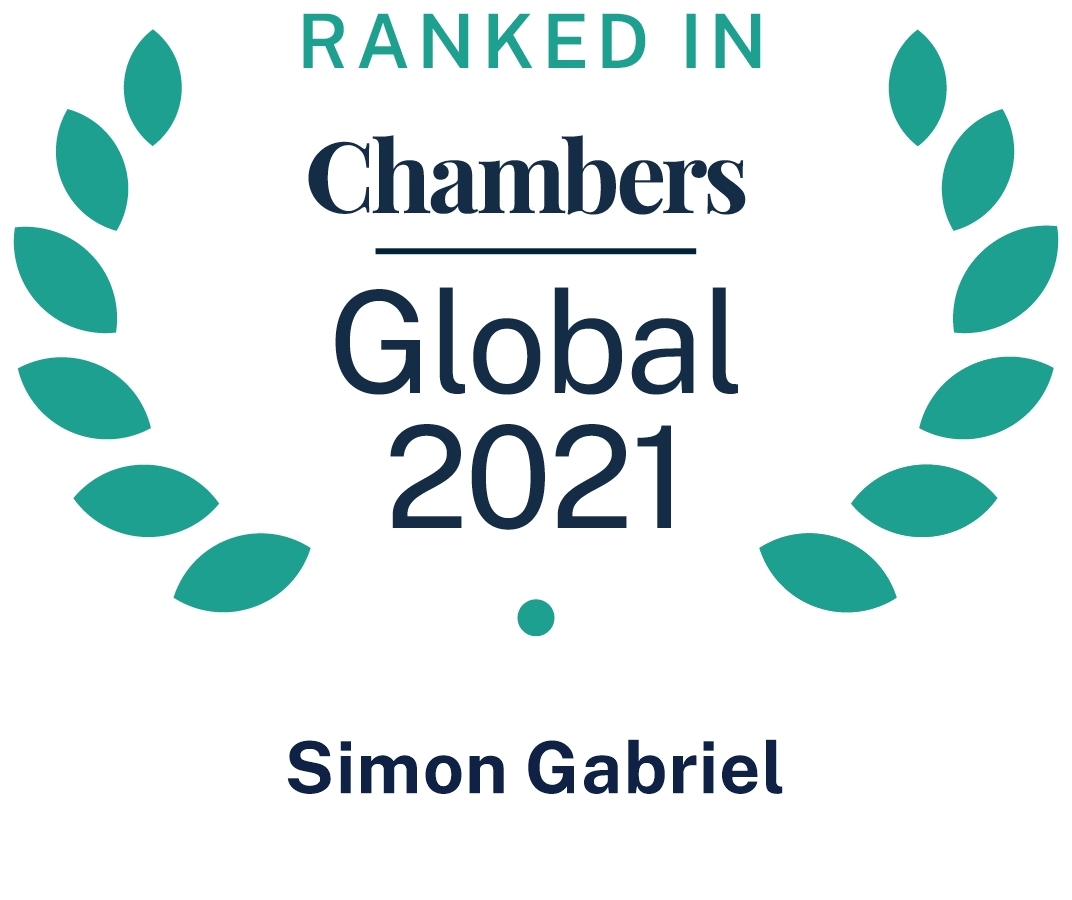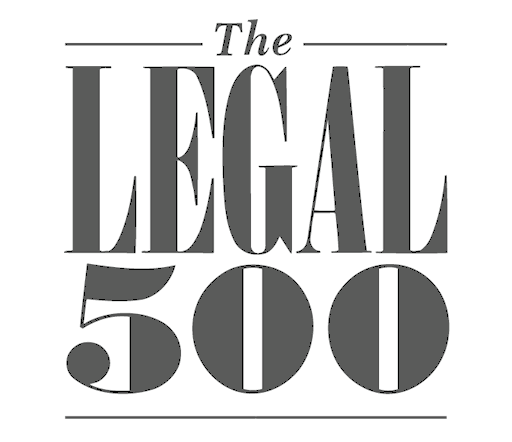Publications
Award granting unlawful success fees upheld
Commentary by Axel Buhr on Swiss Federal Tribunal decision 4A_125/2018 on July 26, 2018
The Swiss Federal Tribunal declined to set aside an award ordering a client to pay success fees to its former law firm for the client’s representation in Swiss arbitration proceedings. In his decision on the fee dispute, the sole arbitrator had expressly deviated from the strict requirements established by the Swiss Federal Tribunal for success fees in recent case law (BGE 143 III 600). Without revisiting the requirements in BGE 143 III 600, the Swiss Federal Tribunal dismissed the client’s appeal for lack of incompatibility of the award with Swiss public policy.
Facts
[1] In 2012, party «A», a Portuguese company, engaged party «B», a Swiss-based law firm, as counsel for two arbitration proceedings. With the two arbitration proceedings, A sought to enforce claims against two third party companies («C» and «D») in connection with A’s supply of certain steel components for two power plants in Germany and Slovenia.
[2] The terms and conditions of B’s engagement were set out in two engagement letters, one for each arbitration. Both engagement letters were subject to Swiss law. The arbitration agreements in the engagement letters unanimously required that any disputes be resolved by an arbitrator with seat in Zurich, in accordance with the arbitration rules of the Swiss Chambers’ Arbitration Institution.
[3] The fee arrangement in both engagement letters was composed of a reduced hourly rate and a success fee component. The first engagement letter provided for «[a] success fee consisting of 15% on any (principal) amount claimed by and awarded to A […] (ignoring any successful set-off defence», capped at CHF 1 Mio. The success fee component in the second engagement letter was more complex. This arrangement reads as follows:
«A success fee consisting of 15% on (i) any amount claimed by and awarded to A.________ SA (ignoring any successful set-off defence) applies.
The success fee becomes payable in addition to the reduced blended hourly rate. The amounts in question do not include any compensation for attorney’s fees or other costs of arbitration and apply irrespective of whether the amount is determined by a decision of settlement.
In the event of a full settlement disposing of all claims in the arbitration, the success fee is reduced to 4% calculated based on the difference between the aggregate amount in dispute (total of claim, counter-claim and sett-off [sic!] defence).
Should B.________ AG consider a settlement offer made by D.________ GmbH to be appropriate, it may request A.________ SA to consent to such offer. Should A.________ SA not wish to agree to the settlement offer, B.________ AG in its own discretion may opt to be compensated in line with this success fee arrangement as if the settlement offer had been accepted.
In no event may (i) the success fee be negative or (ii) exceed CHF 1’500’000 or its equivalent in other currencies (success fee cap).»
[4] In the first arbitration proceedings, A requested payment of some EUR 3 Mio., which was responded by D with a counterclaim in the amount of some EUR 1.8 Mio. A’s claim in the second arbitration proceedings amounted to some EUR 10 Mio, and was answered by D with a counterclaim in the amount of EUR 147 Mio. In April 2014, both arbitration proceedings could be settled with an undertaking of D to pay A a settlement amount of some EUR 11.5 Mio.
[5] Subsequently, a dispute between A and B arose over B’s fees. As the fee dispute could not be settled (even after involving the Zurich bar), B initiated in September 2016 arbitration proceedings against A and requested with its main claim payment of outstanding fees in the amount of CHF 2.5 Mio.
[6] In his final award, the sole arbitrator in January 2018 ordered A to pay some CHF 1.65 Mio. in fees, including the maximum fee of CHF 1.5 Mio. under the second engagement letter.
[7] In his award, the sole arbitrator analysed in detail the requirements and limitations of Swiss law for the legal profession in connection with success fee arrangements, and the established case law of the Swiss Federal Tribunal in this field, including the Swiss Federal Tribunal’s most recent decision BGE 143 III 600 dated 13 June 2017. By expressly deviating from the requirements established by the Swiss Federal Tribunal in BGE 143 III 600, the sole arbitrator found that the success fee arrangement was admissible.
[8] With its appeal, A requested the Swiss Federal Tribunal to set aside the award primarily based on Article 190(2) (e) of the Swiss Private International Law Act (IPRG), arguing that the award was at odds with the requirements of Swiss law for the legal profession in such a blatant way that the award was violating Swiss public policy.
Decision
[9] At the outset of its analysis, the Swiss Federal Tribunal highlighted the fact that the sole arbitrator had in essence overruled the Swiss Federal Tribunal’s interpretation in BGE 143 III 600 of the requirements and limitations for the legal profession in connection with success fee arrangements under Swiss law (consid. 3.1.1).
[10] Analysing the second success fee arrangement (see above at para. 3), the Swiss Federal Tribunal considered the fee arrangement as «highly problematic» (consid. 3.1.2). According to the Swiss Federal Tribunal, the compatibility with the requirements and limitations of Swiss law for the legal profession in connection with success fee arrangement was to be «critically questioned» (consid. 3.1.2).
[11] In this respect, the Swiss Federal Tribunal not only identified the imbalance between the two fee components as a potential shortcoming (with the success fee being five times higher than the other part).
[12] The Swiss Federal Tribunal in particular found fault with the fact that the second success fee arrangement was prone to cause conflicts of interest between B, the law firm, and A, its client. According to the Swiss Federal Tribunal, the terms and conditions were much more favourable for the law firm in case of a settlement by mutual agreement than in case of a settlement by award:
- In case of a settlement by award, the success fee of 15% was calculated based on A’s main claim of some EUR 10 Mio. only (without taking into account D’s counterclaim in the amount of more than EUR 147 Mio.).
- In contrast, in case of a settlement by agreement, the success fee of 4% was calculated based on the entire amount in dispute (including D’s counterclaim).
[13] Under the terms of the second success fee arrangement, the maximum success fee of CHF 1.5 Mio. was not only much easier to achieve if the dispute was settled by agreement. It was also payable even in the event that A chose not to follow the advice of B, its counsel, to enter into a settlement considered favourable (for the client A) by B.
[14] Notwithstanding these concerns, the Swiss Federal Tribunal rejected A’s appeal to set aside the award on the grounds that, in accordance with Article 190 of the Swiss Private International Law Act, an incorrect application of law will only lead to the award being set aside if the award is incompatible with public policy (consid. 3.1.2, in fine).
[15] The Swiss Federal Tribunal recalled its long-standing case law, according to which an award was incompatible with public policy if it disregarded the essential and broadly acknowledged values which, according to prevailing views in Switzerland, should constitute the basis of any legal order (consid. 3.2.1).
[16] The Swiss Federal Tribunal further referred to three previous cases where it had analysed and negated an incompatibility of the scrutinized success fee arrangements with public policy (consid. 3.2.3; the referred cases were 5A_409/2014 dated 15 September 2014, 5P.201/1994 dated 9 January 1995 and 5P.128/2005 dated 11 July 2005).
[17] Having expressly mentioned the fact that the total fees B requested under the second success fee arrangement were about 2% of the amount in dispute in the arbitration proceedings, the Swiss Federal Tribunal concluded that it could not be reasonably claimed that the award was incompatible with public policy.
[18] As A’s other grounds for appeal were not successful either, the Swiss Federal Tribunal dismissed A’s appeal.
Comments
[19] The decision of the Swiss Federal Tribunal does not elucidate in great detail the requirements and limitations of Swiss law for the legal profession in connection with success fee arrangements, nor their interpretation by the Swiss Federal Tribunal in its decision BGE 143 III 600.
[20] For a better understanding of the legal issues it should be recalled that Article 12(e) of the Swiss Federal Act on the Legal Profession («Bundesgesetz über die Freizügigkeit der Anwältinnen und Anwälte»; short title: «Anwaltsgesetz»; [BGFA]) provides for a professional rule which forbids certain success fee arrangements. Translated to English, Article 12(e) BGFA states:
«Prior to completion of a dispute, they [lawyers] must not enter into an agreement with the client, pursuant to which a share in the awarded amount shall substitute their fees; they must also not undertake to waive their fees in the event of an unfavourable outcome.»
[21] Pursuant to Article 2(1) BGFA, the BGFA concerns all qualified Swiss lawyers who represent parties in state courts or are registered to do so. Notably, the entire contentious and non-contentious legal work of the concerned lawyers (whether in or out of court) must comply with the professional rules of the BGFA (Hans Nater, in: Walter Fellmann/Gaudenz G. Zindel [eds.], The Swiss Federal Act on the Legal Profession – Commentary, 2nd ed. Zurich 2011, Article 2 n. 8).
[22] Although Swiss law does not require that the party representatives in Swiss arbitration proceedings be qualified (or registered) lawyers, lawyers concerned by the BGFA must adhere to the professional rules also when acting as counsel in arbitration proceedings (irrespective of whether the arbitration has its seat in Switzerland or abroad). This is why it was clear (and not even mentioned by the Swiss Federal Tribunal) that B’s counsel work had to meet the standard required by the professional rules in the BGFA, and that its success fee arrangement had to comply with Article 12(e) BGFA.
[23] In its decision BGE 143 III 600 dated 13 June 2017, the Swiss Federal Tribunal had recalled that Article 12(e) BGFA was meant to protect clients from lawyers taking improper advantage of their ability to better judge the chance of success of a case, and to ensure that lawyers remained independent from the interests at stake.
[24] The Swiss Federal Tribunal had further recalled in that decision that so-called pacta de quota litis (arrangements where the entire fees depend on the outcome of a dispute) were not compatible with Article 12(e) BGFA. In contrast, so-called pacta de palmario (arrangements where only a portion of the fees depends on the outcome of a dispute) could be permissible, subject to the following (then partially new) requirements:
- The fees which are payable irrespective of the outcome of the dispute must not only cover the costs of the lawyer, but also allow for a reasonable profit.
- The success fees must not significantly exceed the fees that are payable irrespective of the outcome of the dispute. BGE 143 III 600 clarified that the success fees must not be higher than the fees that are payable irrespective of the outcome of the dispute.
- In BGE 143 III 600, the Swiss Federal Tribunal added as a third requirement that the success fee arrangement must be made either at the time when entering into the mandate or after the completion of the case. During the proceedings, lawyers must not enter into success fee arrangements with their clients.
[25] In the present case, the success fee arrangements predated BGE 143 III 600. As the considerations of the sole arbitrator have not been published by the Swiss Federal Tribunal, it is not known whether it was on that basis that the sole arbitrator chose to «expressly deviate» from BGE 143 III 600 and upheld B’s success fee arrangement with A despite the fact that the second requirement had not been met (as noted twice by the Swiss Federal Tribunal in consid. B.b and 3.1.1). As the Swiss Federal Tribunal’s strict interpretation of Article 12(e) BGFA in BGE 143 III 600 has received a lot of criticism from Swiss lawyers and arbitration practitioners, it is also possible that the sole arbitrator simply disagreed with the Swiss Federal Tribunal’s interpretation of Article 12(e) BGFA.
[26] In its decision, the Swiss Federal Tribunal did not revisit its interpretation of Article 12(e) BGFA. Yet, the Swiss Federal Tribunal was right to negate a violation of substantive public policy and dismiss the request to set aside the award based on Article 190(2)(e) of the Swiss International Private Law Act. This is in particular true as the total fees requested under the second success fee arrangement did not exceed some 2% of the amount in dispute (as expressly mentioned by the Swiss Federal Tribunal in consid. 3.2.3), which is well within the typical range of the costs for legal representation in Swiss arbitration proceedings.
[27] An interesting aspect of the decision is the serenity shown by the Swiss Federal Tribunal when confronted with a sole arbitrator who chose to «expressly deviate» from (i.e. in other words overrule) the case law of Switzerland’s highest court.
[28] For international arbitrations with place of arbitration in Switzerland, Article 187(1) of the Swiss Private International Law requires that arbitral tribunals decide their cases according to the rules of law chosen by the parties. Whenever parties choose Swiss law, the chosen law includes Article 1(3) of the Swiss Civil Code, which requires courts (and arbitral tribunals) to «follow established doctrine and case law» (informal translation of the Swiss government, based on the French and Italian language versions of the Swiss Civil Code). While it is widely agreed that courts (and arbitral tribunals) should take guidance from, but are not bound by, legal doctrine, the interpretation is more strict when it comes to the case law of Swiss state courts, and that of the Swiss Federal Tribunal in particular. In this regard, it is generally assumed that courts (and arbitral tribunals) must not deviate from the case law of Switzerland’s highest court without good cause, even if they consider a different interpretation of the relevant law more convincing (Susan Emmenegger/Axel Tschentscher, in: Regina E. Aebi-Müller/Pia Caroni/Susan Emmenegger et al. [eds.], Berner Kommentar Band I/1, Berne 2012, Article 1 Swiss Civil Code, n. 500).
[29] In our view, a high threshold helps to preserve the unity of the legal order and a consistent application of law across all courts and arbitral tribunals in Switzerland. This is especially true against the background of the «iura novit curia» principle, according to which Swiss arbitrators (like state courts) are required «to (i) ascertain the law applicable to the merits on its own initiative and (ii) apply the law so determined ex officio» (Bernhard Berger/Franz Kellerhals, International and Domestic Arbitration in Switzerland, 3rd edition Berne 2014, para. 1434).
[30] Even though Article 1(3) of the Swiss Civil Code may not be part of procedural public policy, we find it remarkable that the Swiss Federal Tribunal has not commented with a single word on the fact that the sole arbitrator chose to expressly deviate from the case law of the Swiss Federal Tribunal in his award.
[31] This decision is a further example for the great restraint with which the Swiss Federal Tribunal reviews awards when it is requested to set them aside.
[32] Take-aways:
- For Swiss counsel: The present decision does not change the fact that success fee arrangements must comply with the strict requirements established by the Swiss Federal Tribunal in BGE 143 III 600. Success fee arrangements which are incompatible with the Swiss Federal Tribunal’s interpretation of Article 12(e) BGFA remain unlawful. Lawyers may not only face difficulties in obtaining the required approval for the enforcement of incompatible success fee arrangements from the competent supervisory commissions, they are also at risk of becoming sanctioned by the same commissions for violating Article 12(e) BGFA.
- For arbitrators: In our view, arbitrators are well advised to align their interpretation of Swiss law with the established case law of Switzerland’s highest court. In line with Article 1(3) of the Swiss Civil Code, arbitrators should not deviate from the case law of the Swiss Federal Tribunal without good cause, even if they consider a different interpretation of the relevant law more convincing. For the sake of foreseeability of Swiss arbitration proceedings and compatibility of Swiss arbitral awards with the case law of Swiss state courts, there should be no double standards when it comes to the application of Swiss law.
Zitiervorschlag:
Axel Buhr, Award granting unlawful success fees upheld, in: dRSK, publiziert am 27. September 2018





